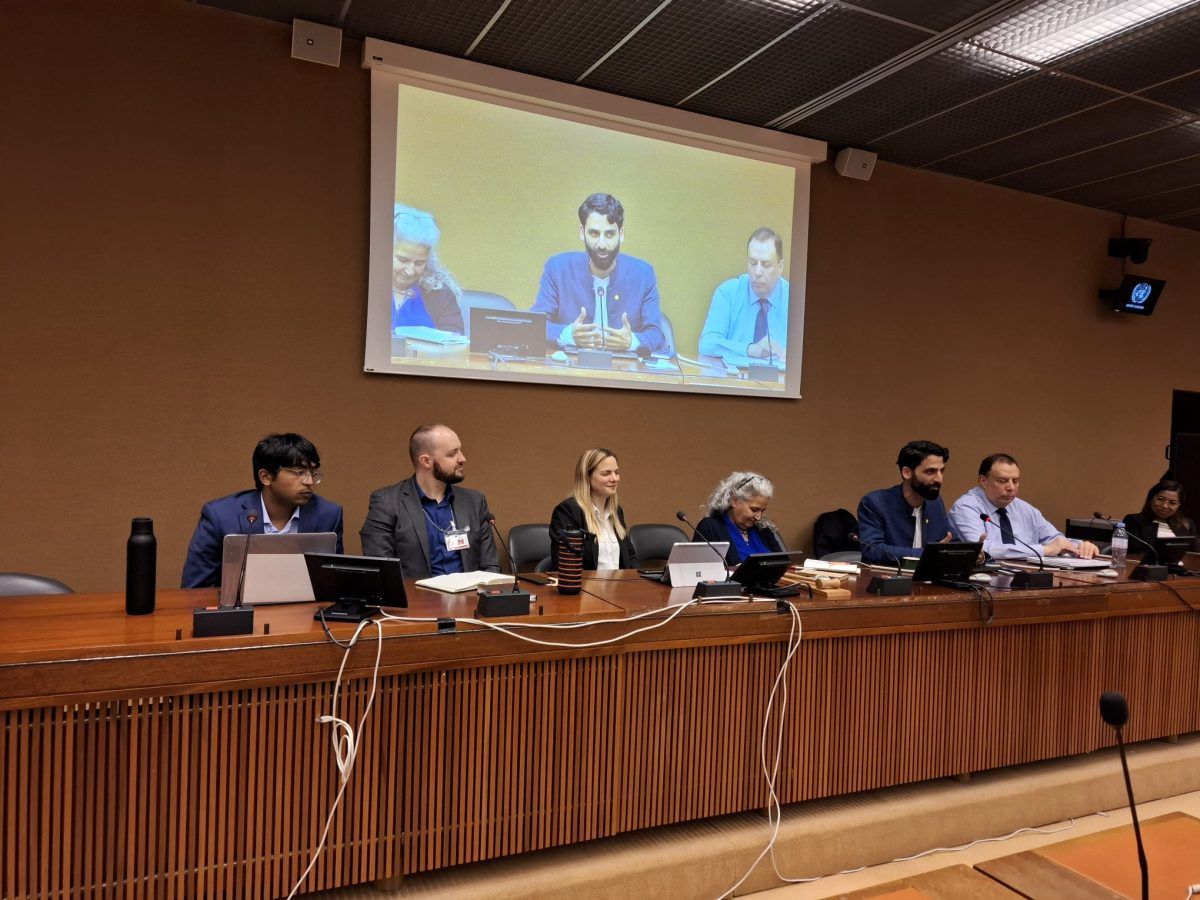IPB attended the first week of this year’s NPT Preparatory Committee in Geneva. From July 22nd to the 26th, the International Peace Bureau hosted two side events, and further participated in two thought-provoking roundtable discussions created by our partners.
Our first event, occurring on Monday, was oriented on the vitality of Nuclear Weapon Free Zones (NWFZs). Our speakers covered a variety of pressing issues, from the legal loopholes existing in many NFWZ treaties to how civil society organizations could collaborate to remedy them. The panel featured Reiner Braun, former Executive Director of IPB; Alain Ponce Blancas, Research and Communication Officer of Agency Prohibition of Nuclear Weapons in Latin America and the Caribbean (OPANAL); Enobot Agboraw, Executive Secretary of African Commission on Nuclear Energy (AFCONE); Enkhsaikhan Jargalsaikhan, Chairman of Blue Banner and Board Member of IPB, and Leonardo Bandarra from the Middle East Treaty Organization (METO). At the end of their remarks, a Q&A session ensued, capping off what was a strong start to the week.
Our second event took place the day after in collaboration with METO, and was centered on the prospect of denuclearization in the most volatile region in the world: the Middle East. Just like our event prior, our panel featured a stacked roster of experts, including, Sharon Dolev, Founder and Executive Director of METO and Council Member of IPB; Tariq Rauf, Former Head of Verification & Security Policy, Alt Head of NPT Delegation; Emad Kiyaei, Director of METO; Emily Molinari, IPB Deputy Executive Director; and Sean Conner, Executive Director of IPB Executive Director. The experts touched on key elements that will be integral for securing a future peace in the Middle East, such as the fulfillment of the Arab Peace Initiative and the necessity of a multilateral disarmament across the land. Perhaps most importantly, the hour-long discussion ended on an optimistic note, with the general consensus being that hope is required, even during the bleakest moments, in order to truthfully vie for peace.
The rest of the week presented several duly appreciated opportunities for IPB to learn about other organizations’ goals through their own events. On Wednesday, for instance, the team had the pleasure to partake in an open discussion led by SCRAP Weapons and the Geneva Centre for Security Policy (GCSP) on how civil society organizations can effectively advocate for a Fourth Special Session on Disarmament. Conversations on disarmament and security continued as METO invited guests to their own roundtable, which was a relevant extension of our joint side event on Tuesday. The room was filled with brilliant discourse on the vitality of increasing communication within civil society and the potential of a renewed Arab Peace Initiative. And then on Friday, members of IPB’s staff finished off our participation in the NPT PrepCom after attending side events held by the delegations of the Philippines, Finland, and Germany.
Overall, the continuation of activism and diplomacy through the annual PrepCom serves as a critical foundation upon which real progress can be built from. IPB remains hopeful about the future, and looks forward to the day when nuclear weapons become relics of the past, as they should be.

